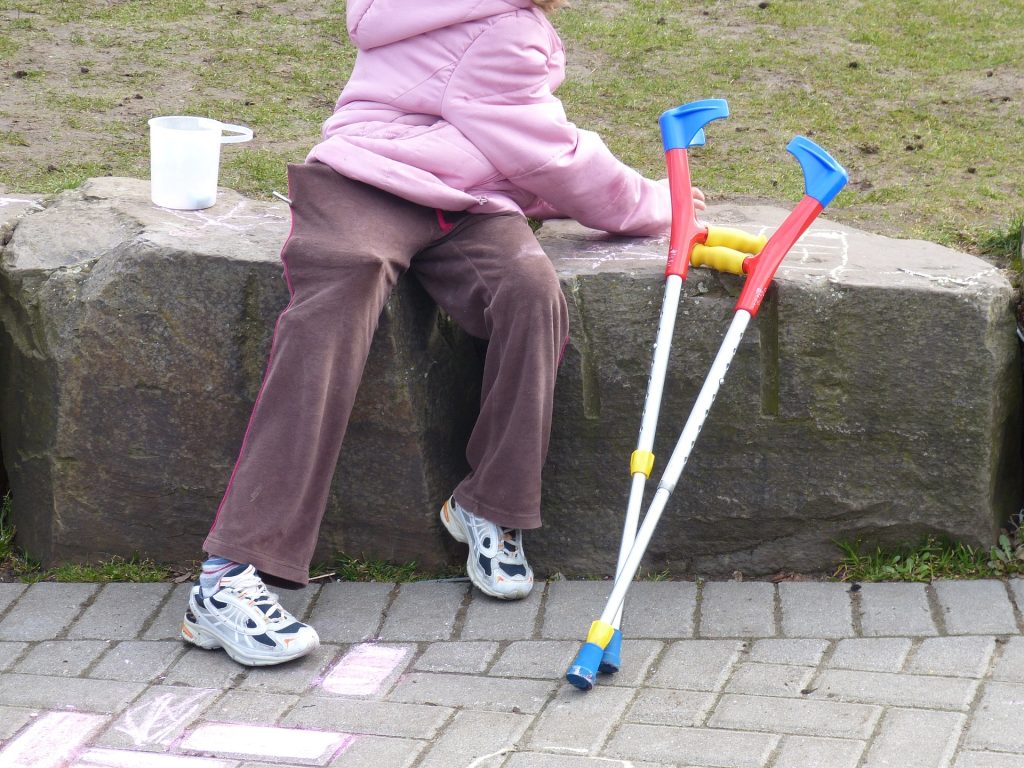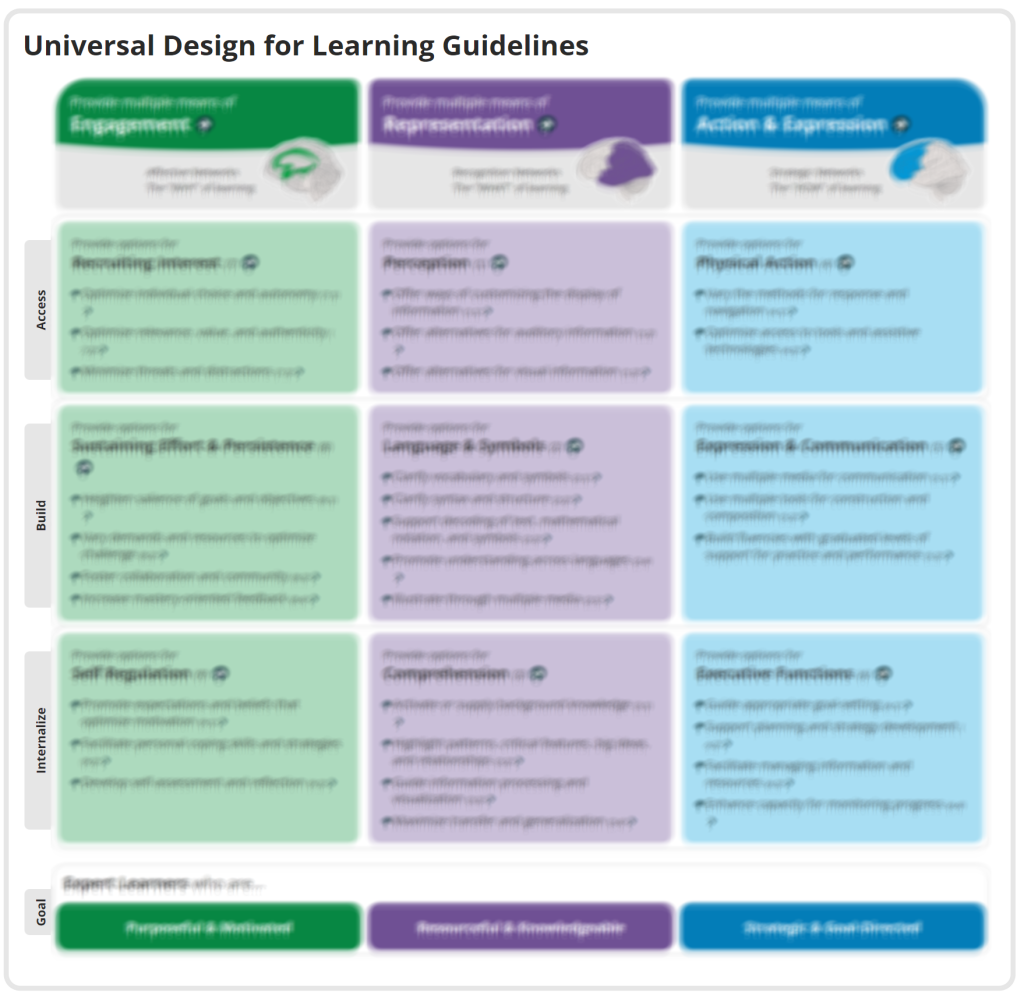7.6 Inclusion in Early Years Settings

What is inclusion?
“Inclusion is a universal human right and its objective is to accept, welcome and embrace all people irrespective of race, gender, disability, medical or other need. Inclusion consists of the efforts and practices to ensure groups or individuals with different backgrounds are culturally and socially accepted, and treated equally” (Inclusion Action in Ontario, 2022, para.1).

CAST. Used under fair dealing. All Rights Reserved.
Click the image to view The UDL Guidelines.
Early years settings provide inclusive spaces for children of varying abilities to participate in environments that promote a sense of belonging and support a strong sense of well-being. Learning spaces must be intentionally created to ensure all children are able to participate in the activities provided. Universal design for learning (UDL) provides educators with guidelines and resources to make learning spaces accessible and inclusive for all children entering the space.
Inclusion in ECEC
“We believe that it is in early childhood that the foundations for life are laid, and thus an inclusive education as a child is the basis for an inclusive life in the community. It is for this reason that our work centers around ensuring an inclusive education for students with disabilities, who are often excluded or placed in integrated/segregated/congregated settings” (Inclusion Action in Ontario, 2022, para.3).
Early years settings in Ontario work in collaboration with professionals who have expertise in supporting educators in providing inclusive education and care for children. Licensed child care agencies work in partnership with a resource consultant who often connects the families and educators with services to provide additional knowledge and support to ensure inclusion for all children. Licensed settings are required to develop an Individualized Support Plan for children when receiving additional support to ensure all employees in the early years setting have knowledge of how to make the setting inclusive.
Regulation
52. (1) Every licensee shall ensure that an up-to-date individualized support plan is in place for each child with special needs who receives child care at a child care centre it operates or premises where it oversees the provision of home child care, and that the plan includes,
(a) a description of how the child care centre or the home child care provider will support the child to function and participate in a meaningful and purposeful manner while the child is in the care of the centre or provider;
(b) a description of any supports or aids, or adaptations or other modifications to the physical, social and learning environment that are necessary to achieve clause (a); and
(c) instructions relating to the child’s use of the supports or aids referred to in clause (b) or, if necessary, the child’s use of or interaction with the adapted or modified environment.
(2) The plan referred to in subsection (1) must be developed in consultation with a parent of the child, the child (if appropriate for the child’s age) and any regulated health professional or other person who works with the child in a capacity that would allow the person to help inform the plan.
(Ontario Regulation 137/15, under the Child Care and Early Years Act, 2014. © King’s Printer for Ontario, 2015)
Individualized Family Service Plan (IFSP)
Individualized Family Service Plans (IFSP) are developed in collaboration with the early years setting, the family, the resource consultant and any other professionals providing services for the family. The IFSP is based on the needs of the child and the family. The plan typically includes goals, updates, and addresses any gaps in service. Educators may be involved in attending family service plan meetings to share their knowledge of how the child engages in the early years setting and to learn more from the family to support the child while in the educator’s care. These meetings are a great way to build relationships and to ensure the child’s needs are being met while in group care.
Sample IFSP (PDF)
Educators are knowledgeable of the IFSP goals and learn how to implement assistive devices to support children in the early years setting. Resource consultants and other members of the interprofessional team provide information and resources to ensure the early years program is inclusive for all children. School transition meetings take place with the family and interprofessional team as the child ages out of the early years setting and moves onto kindergarten and school age programs.
Individualized Support Plan (ISP)
Families who do not want to be involved in the development of an Individualized Family Service Plan can aid in the development of an Individualized Support Plan (ISP) with an early years setting. Licensees can develop an ISP jointly with the family in order to better understand how to prepare the setting for the child to ensure they are fully included in the program.
Sample Individualized Plan (PDF)
The Rights of the Child
Every child with a disability should enjoy the best possible life in society. Governments should remove all obstacles for children with disabilities to become independent and to participate actively in the community (UNICEF, 2023).

